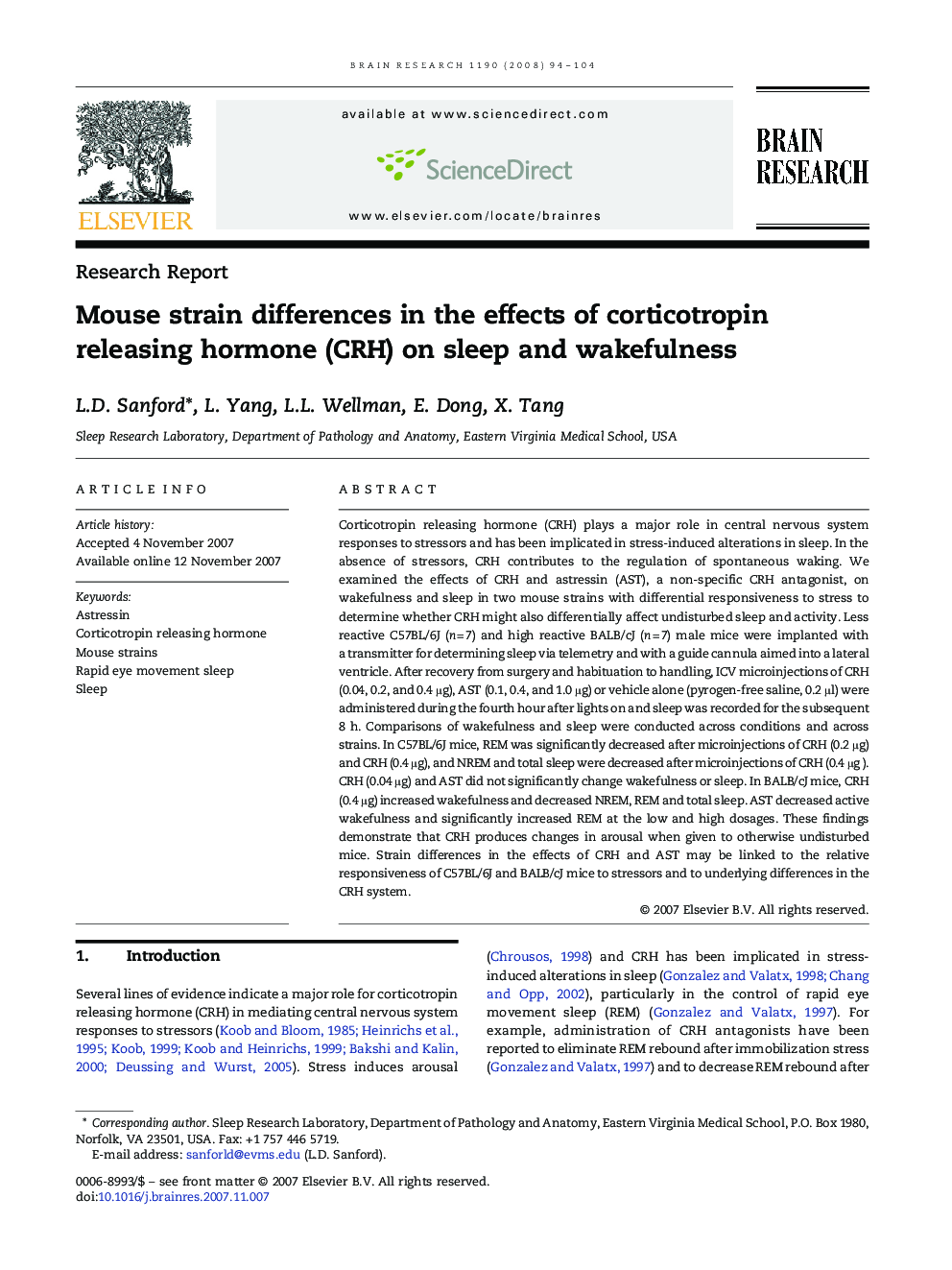| Article ID | Journal | Published Year | Pages | File Type |
|---|---|---|---|---|
| 4330105 | Brain Research | 2008 | 11 Pages |
Corticotropin releasing hormone (CRH) plays a major role in central nervous system responses to stressors and has been implicated in stress-induced alterations in sleep. In the absence of stressors, CRH contributes to the regulation of spontaneous waking. We examined the effects of CRH and astressin (AST), a non-specific CRH antagonist, on wakefulness and sleep in two mouse strains with differential responsiveness to stress to determine whether CRH might also differentially affect undisturbed sleep and activity. Less reactive C57BL/6J (n = 7) and high reactive BALB/cJ (n = 7) male mice were implanted with a transmitter for determining sleep via telemetry and with a guide cannula aimed into a lateral ventricle. After recovery from surgery and habituation to handling, ICV microinjections of CRH (0.04, 0.2, and 0.4 μg), AST (0.1, 0.4, and 1.0 μg) or vehicle alone (pyrogen-free saline, 0.2 μl) were administered during the fourth hour after lights on and sleep was recorded for the subsequent 8 h. Comparisons of wakefulness and sleep were conducted across conditions and across strains. In C57BL/6J mice, REM was significantly decreased after microinjections of CRH (0.2 μg) and CRH (0.4 μg), and NREM and total sleep were decreased after microinjections of CRH (0.4 μg ). CRH (0.04 μg) and AST did not significantly change wakefulness or sleep. In BALB/cJ mice, CRH (0.4 μg) increased wakefulness and decreased NREM, REM and total sleep. AST decreased active wakefulness and significantly increased REM at the low and high dosages. These findings demonstrate that CRH produces changes in arousal when given to otherwise undisturbed mice. Strain differences in the effects of CRH and AST may be linked to the relative responsiveness of C57BL/6J and BALB/cJ mice to stressors and to underlying differences in the CRH system.
